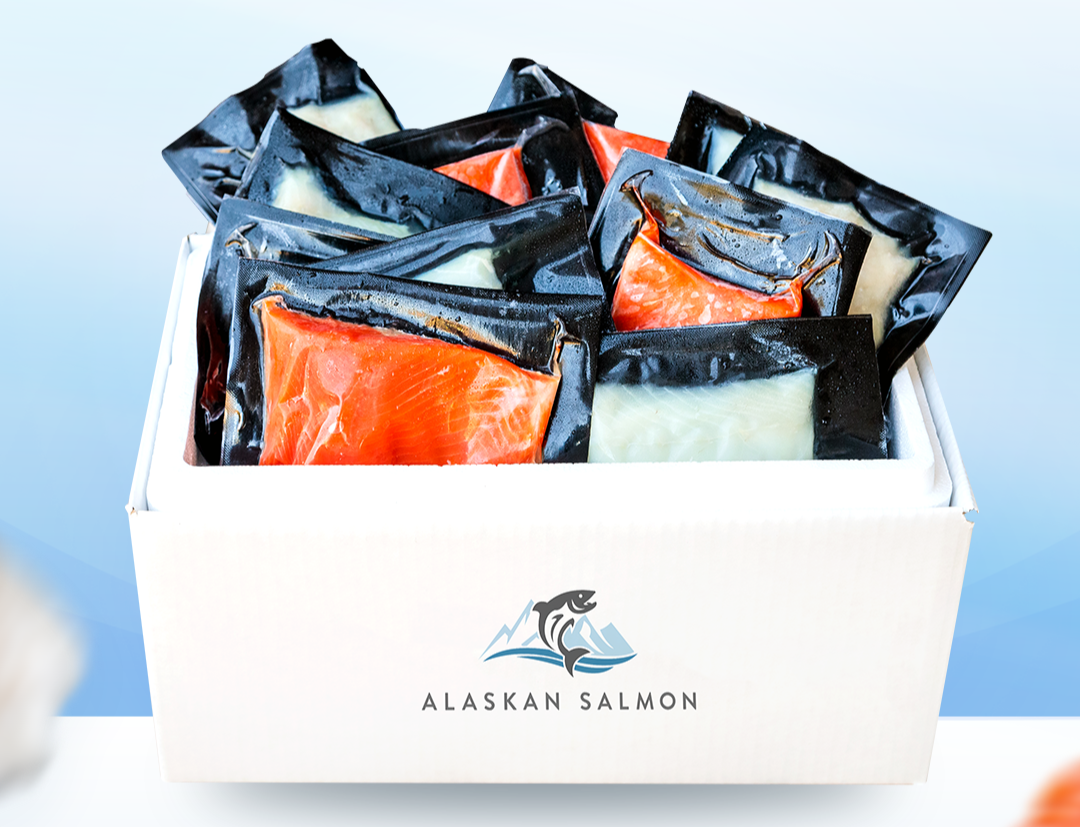Is Cod Healthy? Nutrition, Benefits, and Risks
Updated on Jun 03, 2024
Fish is known to be a highly nutritious food that offers numerous benefits, which is why it’s a popular choice among those who value their health. It is an excellent source of high-quality protein, as well as vitamins and minerals.
Cod is a particularly notable example of a healthful fish. As a matter of fact, its popularity is growing, as evidenced by the projected surge in the global cod fish market, which is expected to reach $46 billion by 2033 (opens in a new window).
We’ll explore its nutrition profile, health benefits, and risks associated with cod for those looking to incorporate this fish into their diet.
What is Cod?
Cod is a type of fish known for its mild flavor and firm, flaky texture. It's a popular seafood choice in many cuisines worldwide and can be prepared in various ways, including baking, frying, and grilling. Cod is also a key ingredient in traditional dishes like fish and chips.
Given its versatility, people worldwide make it a staple in their everyday meals and gourmet recipes.
While cod generally refers to species such as Atlantic cod (Gadus morhua) and Pacific cod (Gadus macrocephalus), it is important to distinguish these from black cod, also known as sablefish (Anoplopoma fimbria). Despite the name, black cod is not actually part of the cod family.
Alaskan cod, on the other hand, typically refers to the Pacific cod caught in the cold, pristine waters of Alaska. It’s known for its clean, mild flavor and firm texture, which makes it highly valued in the culinary world.
Cod Nutrition Facts
Cod is a nutritious seafood choice, as it offers a good source of protein and several essential vitamins and minerals.
A 3-ounce (85-gram) serving of cooked cod typically provides the following [*, opens in a new tab]:
- Calories: 71.4
- Protein: 17.3 grams
- Fat: 0.2 grams
- Carbohydrates: 0 grams
- Omega-3 fatty acids: 0.05 grams DHA, 0.018 grams EPA
Additionally, cod is rich in vitamins such as B12, B6, and niacin, as well as minerals like phosphorus, selenium, and potassium. It's low in saturated fat and a good source of heart-healthy omega-3 fatty acids.
Health Benefits of Cod
Regardless of how cod is cooked, it can be a delicious and beneficial addition to your meals. Here are important reasons to incorporate cod into your lifestyle.
High Protein Content
Cod is rich in high-quality protein, which is essential for muscle building and repair, and several other body functions.
A study published in the Diabetes Care Journal, opens in a new tab demonstrated that dietary cod protein can enhance insulin sensitivity in insulin-resistant individuals, potentially aiding in the prevention of type 2 diabetes by mitigating metabolic complications related to insulin resistance.
The research compared the effects of cod protein to other animal proteins on insulin sensitivity and β-cell function in insulin-resistant subjects through a crossover design study.
The results indicated a significant improvement in insulin sensitivity and a tendency for a better disposition index in subjects consuming the cod protein diet compared to those on a diet containing lean beef, pork, veal, eggs, milk, and milk products.
Improved insulin sensitivity means better weight management, blood sugar control, increased energy levels, and a lower risk of heart disease.
Source of Omega-3 Fatty Acids
Cod is a good source of omega-3 fatty acids, particularly EPA (eicosapentaenoic acid) and DHA (docosahexaenoic acid), which are beneficial for heart health, brain function, and reducing inflammation in the body.
The anti-inflammatory properties of omega-3 fatty acids can help with conditions like rheumatoid arthritis, asthma, and migraines [*, opens in a new tab].
Low in Calories and Saturated Fat
Cod is relatively low in calories and saturated fat, making it a suitable choice for individuals looking to manage their weight or reduce their intake of unhealthy fats.
A dietary intervention study found that consuming 150 grams of cod 5 times per week during an 8-week energy-restricted diet resulted in 1.7-kilogram greater weight loss compared to a control group without seafood [*, opens in a new tab].
The study suggests a dose-response relationship between cod intake and weight loss in young overweight or obese adults. Meaning, the amount of cod consumed is directly related to the amount of weight lost.
Rich in Vitamins and Minerals
Cod contains various vitamins and minerals such as vitamin B12, vitamin B6, niacin, phosphorus, selenium, and potassium, which are important for energy production, nerve function, bone health, and immune system support.
Promotes Heart Health
When it comes to cod, it offers various health benefits that can boost heart health. Studies suggest that omega-3 fatty acids increase fatty acid oxidation, suppress hepatic lipogenesis, and reduce VLDL production — all of which contribute to lowering triglyceride levels [*, opens in a new tab].
Low triglyceride levels are often indicative of a healthy metabolic profile, with a lower risk of conditions like metabolic syndrome and type 2 diabetes.
Health Risk of Eating Cod
While cod is generally considered a healthy food choice, there are some health risks associated with its consumption:
Mercury exposure
Like many other types of fish, cod may contain traces of mercury, opens in a new tab, especially larger, older fish. High levels of mercury consumption can be harmful, particularly for pregnant women, nursing mothers, and young children. These groups should limit their intake of high-mercury fish, including cod, and choose lower-mercury alternatives instead.
Allergic reactions
Some individuals may be allergic to fish proteins, including those found in cod. Allergic reactions to cod can range from mild to severe and may include symptoms such as hives, itching, swelling, difficulty breathing, and in severe cases, anaphylaxis.
Anyone with a known fish allergy should avoid consuming cod and other types of fish.
Environmental contaminants
Cod and other fish may be exposed to environmental contaminants such as polychlorinated biphenyls (PCBs) and dioxins, which can accumulate in their tissues.
While the levels of these contaminants in cod are generally low, long-term exposure to high levels of environmental pollutants can potentially pose health risks. Choosing cod from reputable sources and consuming it in moderation can help minimize exposure to these contaminants.
Interactions with medications
Individuals taking certain medications, such as blood thinners like warfarin, should consume cod and other fish rich in omega-3 fatty acids with caution, as they may have blood-thinning effects.
It's important to consult with a healthcare professional before making significant changes to your diet, especially if you have underlying health conditions or are taking medications.
Adding Cod to Your Diet
Adding cod to your diet can indeed be part of a healthy eating plan! Here are some tips to make your cod dishes even healthier:
- Choose lean cooking methods. Opt for cooking methods that don't require adding extra fat, such as baking, grilling, broiling, or steaming. These methods help retain the fish's natural flavors without adding unnecessary calories from added fats.
- Limit added fats. When cooking cod, use minimal amounts of added fats such as oil or butter. Instead of frying, consider using cooking sprays or parchment paper to prevent sticking. You can also add a splash of lemon juice or a few thin slices of lemon on top for added flavor without extra fat.
- Incorporate vegetables. Pair cod with a variety of colorful vegetables to boost the nutritional value of your meal. Vegetables are low in calories and high in vitamins, minerals, and fiber, making them an excellent addition to any dish. Examples of these veggies and spices include cherry tomatoes, red onion, zucchini, eggplant, and garlic.
- Serve with whole grains. Serve cod with whole grains such as brown rice, quinoa, barley, or whole wheat couscous to add fiber and complex carbohydrates to your meal. Whole grains provide sustained energy and can help you feel fuller for longer.
- Season with herbs and spices. Flavor your cod dishes with herbs, spices, and citrus zest instead of relying on salt or high-calorie sauces. Fresh herbs like parsley, cilantro, and dill, along with spices such as paprika, cumin, and turmeric, can enhance the taste of cod without adding extra calories.
- Watch portion sizes. Be mindful of portion sizes to avoid overeating. A serving size of fish is typically around 3-4 ounces, which is about the size of a deck of cards. Pair your cod with generous servings of vegetables and whole grains to create a satisfying and balanced meal.
- Limit added salt. Be cautious with the amount of salt you add to your cod dishes, as excessive salt intake can contribute to high blood pressure and other health issues. Instead, use salt-free seasoning blends, fresh herbs, and citrus juices to add flavor without the extra sodium.
Follow these cooking methods so that you and your loved ones can enjoy the health benefits of cod while creating delicious and satisfying dishes!
The Bottom Line
As you’ve learned in this article, cod is a highly nutritious and versatile fish that can be a valuable addition to a healthy diet. Making it a part of your meals can boost heart health, promote weight management, and provide essential nutrients.
However, it's also important to be mindful of potential health risks associated with cod consumption. Be sure to choose cod from reputable sources and follow safe cooking practices.








